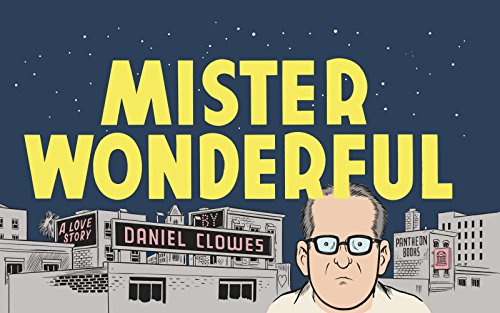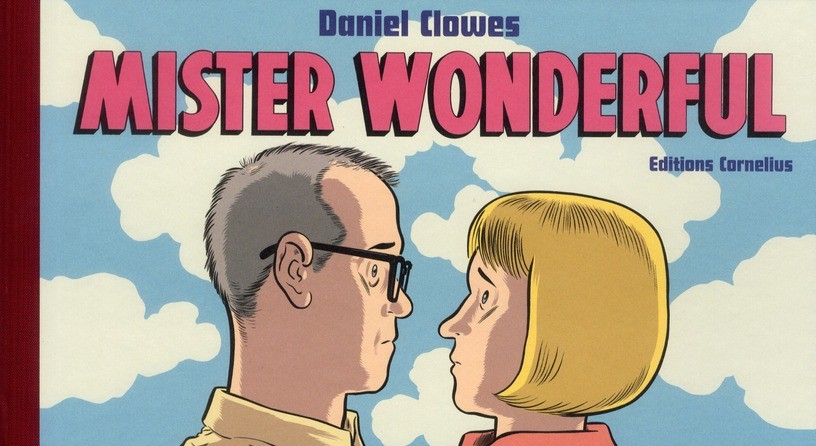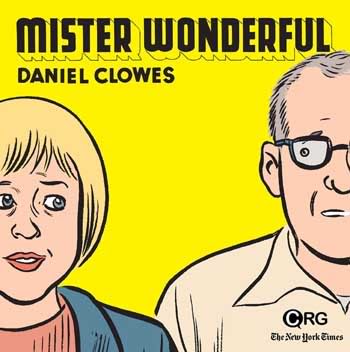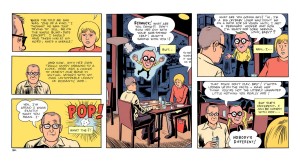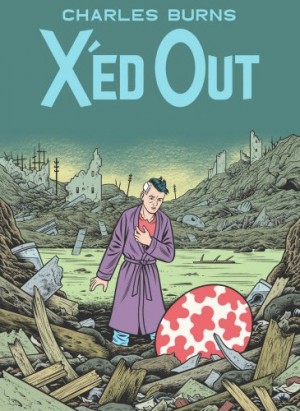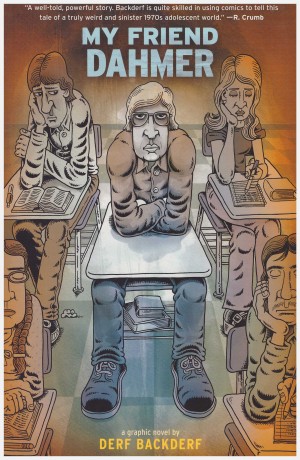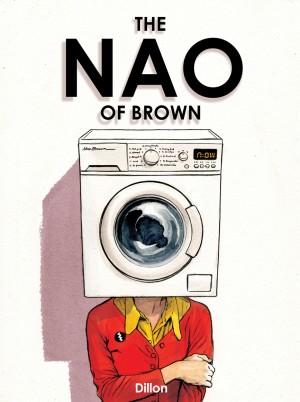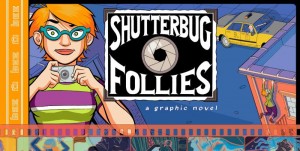Review by Graham Johnstone
Mister Wonderful was described by its creator Daniel Clowes as a ‘midlife romance’. It was originally published in the prestigious New York Times Sunday Magazine, where it won an Eisner award for Best Short Story, but has been reworked and expanded for this volume. The original pages as laid out for the magazine have been split into two of the book’s landscape format pages, with extra pages added.
Clowes is most famous for Ghost World, subsequently a successful film, and Mister Wonderful is almost a companion piece. Ghost World relates how Enid and Rebecca, teenaged, slightly alienated outsiders with a wry critique of the world around them, face a turning point in their lives. In a mean prank they respond to a lonely hearts ad from a middle-aged man and sit in the cafe watching his discomfort and disappointment.
Marshall, the protagonist of Mister Wonderful (it’s ironic), is similar except that he is a middle aged man sitting in a cafe wondering if his date will show up.
It’s an understated story of an evening and the next morning. It’s all told from Marshall’s viewpoint, except for a two-page interlude of the couple who set up the date discussing how they think it will go. Clowes’ strength as a writer is his characters. He makes good use here of Marshall’s interior voice, which gives us an anxious running commentary on the night’s events. At times this drowns out actual conversations: he can’t hear her over his inner voice, and the captions literally obscure the dialogue balloons. These effects work more elegantly in a comic than in novels or films.
Things seem to be going well until Natalie is called away to something else: an emotional challenge she needs to face. It might all end there, but an impromptu act of heroism on Marshall’s part keeps him in the game. A cast of oddball supporting characters is supplied as foils for the leads.
It’s a good story well told. Clowes is never going to force a ‘happy ever after’ ending, but given Marshall’s starting point, it’s fairly upbeat.
Clowes is a capable if unspectacular artist. His strength is portrayal of characters, their thoughts and interaction conveyed through facial expressions and body language. His rendering can be somewhat dry. Here it’s middling: not as good as the quirkily detailed Ghost World, but better than Wilson from around the same time. But this is art and text expertly woven together to tell a low-key story – attention-grabbing art might be distracting.
As a standalone book it is somewhat slight. Serialised in the NYT magazine it was a mere eighteen pages. The expansion is primarily via the addition of two-page spreads of single images, or sometimes just sound effects. They do help in breaking up the otherwise densely packed panels, but it still seems as if Clowes said what he wanted to in the original material, then padded it out for book publication.
This may not be Clowes at his absolute best, but it’s still an authentic story sensitively told, in a way that could only be done in comics, yet still rarely is.
